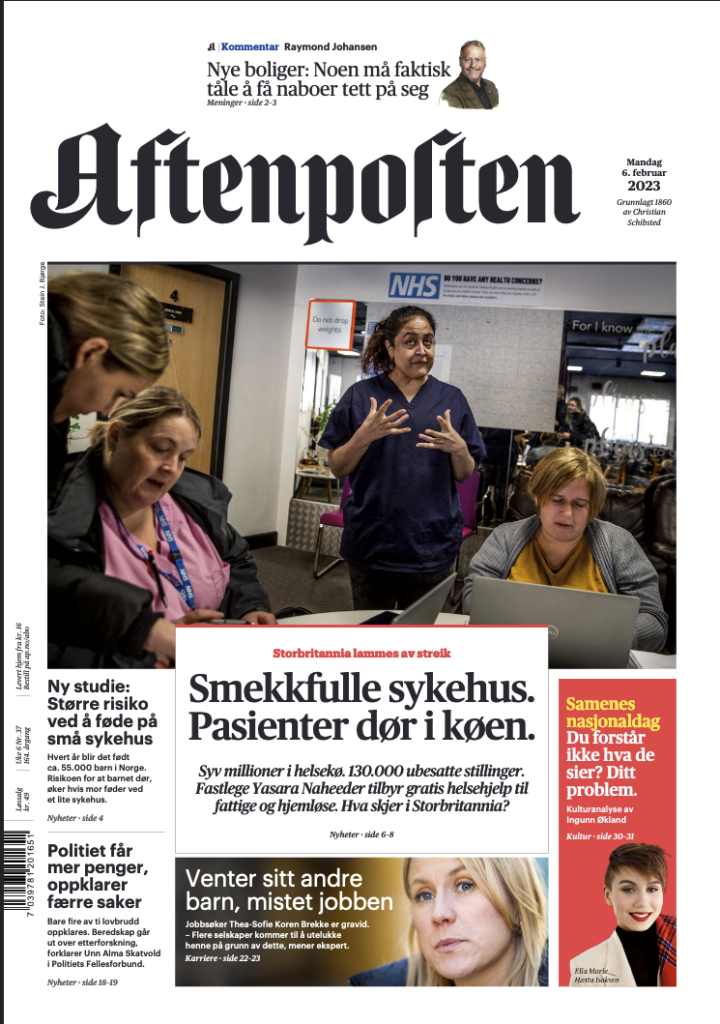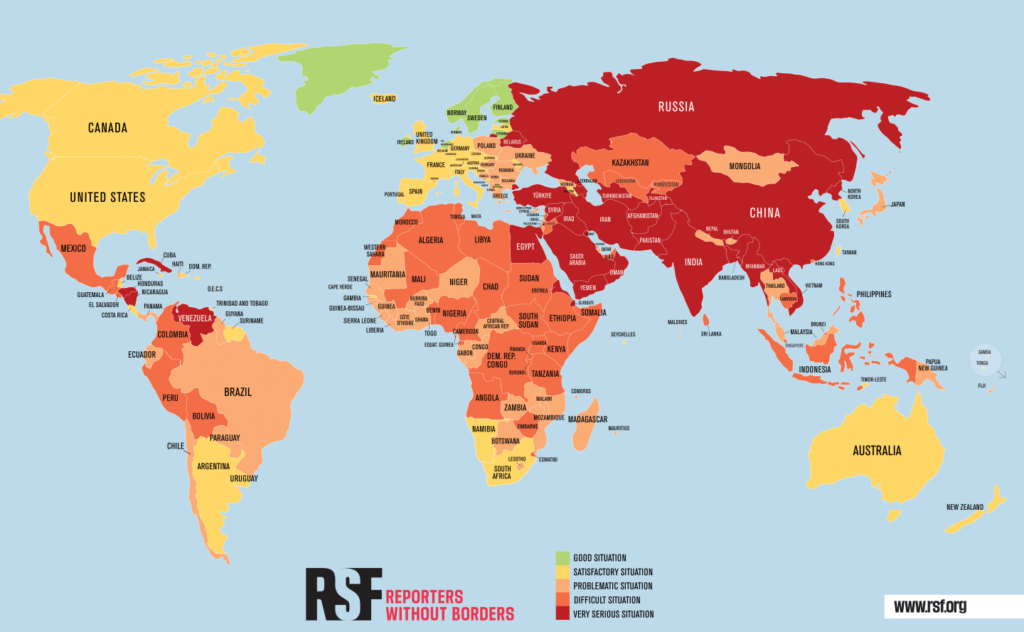Estonia, who in the 2022 World Press Freedom Index had risen from the 15th position to fourth, has now dropped four spots in the 2023 index, placing eight among the 180 countries evaluated.
“Although press freedom is guaranteed on the legal and political levels, journalists face the risk of self-censorship due to anti-defamation legislation and cyber-bullying,” Reporters without Borders, the organisation that compiles the World Press Freedom Index, said.
“Although no long-term cultural or societal constraints have prevented journalists from doing their job, the media were accused by a part of the population of complacency with the authorities and pharmaceutical companies during the Covid-19 pandemic. As a result, journalists suffered online and offline verbal attacks.”
Reporters without Borders also points out that while physical attacks against journalists are extremely rare, they have been exposed to a growing number of online threats by private individuals, the most severe cases being reported to the police and investigated.
“The media houses have deployed measures to better protect journalists, but in the context of lacking systematic psychological assistance, cyberbullying may have a self-censorship effect on journalists,” the organisation adds.

The problems are on the rise
The board of the Estonian Association of Journalists expressed its concern about the safety of journalists after the release of this year’s index.
“Compared with much of the world, the situation of press freedom in Estonia is good. Journalists aren’t killed or imprisoned here. But the safety of journalists is not only a matter of physical attacks, but also psychological harassment such as online harassment, threats of legal action and so on. These problems are on the rise here. They need to be reported and dealt with now, before press freedom is seriously jeopardised,” Helle Tiikmaa, the chair of the Estonian Association of Journalists, said, according to BNS.
“Estonia’s decline in the press freedom index seems negligible, but a decline is a decline, and landslides and avalanches also start with small tremors. Hungary, too, used to be an open society. Yes, we have no journalists killed, but there is the recent case of burning down Teet Korsten’s house. We expect the arsonists to be caught quickly,” Ago Gaskov, deputy chairman of the board of the association, added, BNS reported.
Teet Korsten is an Estonian journalist whose house in Kohtla-Järve, a town in eastern Estonia, was burned down twice in April 2023. In the second fire, he lost his beloved cat.

Private data laws used to restrict access
According to Reporters without Borders, the political environment in Estonia has been characterised by a relative neutrality towards journalism and few verbal attacks, which has contributed to journalists being able to hold politicians accountable without fear of persecution.
“Although constitutionally guaranteed, media freedom is constrained by legislation protecting against defamation and disclosure of private data. While the fear of defamation lawsuits may lead to self-censorship, the laws protecting private data have recently become a pretext of Estonian authorities to increasingly restrict media’s access to public information.
Norway is ranked first for the seventh year running in the 2023 World Press Index. But – unusually – a non-Nordic country is ranked second, namely Ireland (up four places at second), ahead of Denmark (down one place at third). Sweden is ranked fourth, Finland fifth, the Netherlands sixth, Lithuania seventh, Portugal ninth and Timor Leste (East Timor) tenth.

Reporters without Borders says that the situation is “very serious” in 31 countries, “difficult” in 42, “problematic” in 55, and “good” or “satisfactory” in 52 countries. “In other words, the environment for journalism is “bad” in seven out of ten countries, and satisfactory in only three out of ten.”
Reporters Without Borders, a Paris-based non-profit and non-governmental organisation, uses five indicators to compile the press freedom index: the political context, legal framework, economic context, sociocultural context and security. The organisation has compiled and published the index since 2002.


Bullying, as a whole is a problem throughout Estonian society.
So I understand this as I experienced it personally several times. Being an Estonian citizen born outside of Estonia I had to deal with systematic cultural Bullying when I lived in Estonia from 1995 to 1997.
I worked in a Military Law-Enforcement position and had to even physically defend myself several times and put the kodu eestlased bullies in their place with the only thing that they understood, by applying,Boldness, Streagth and Force!